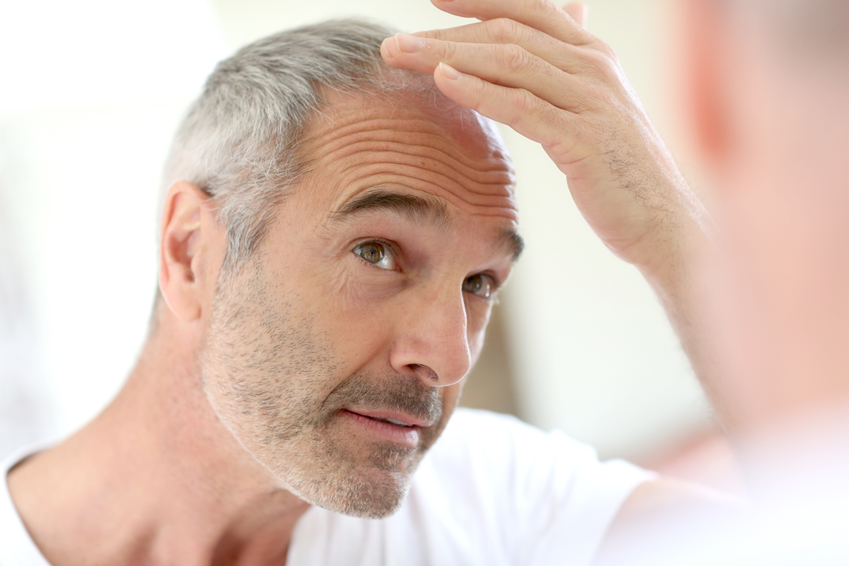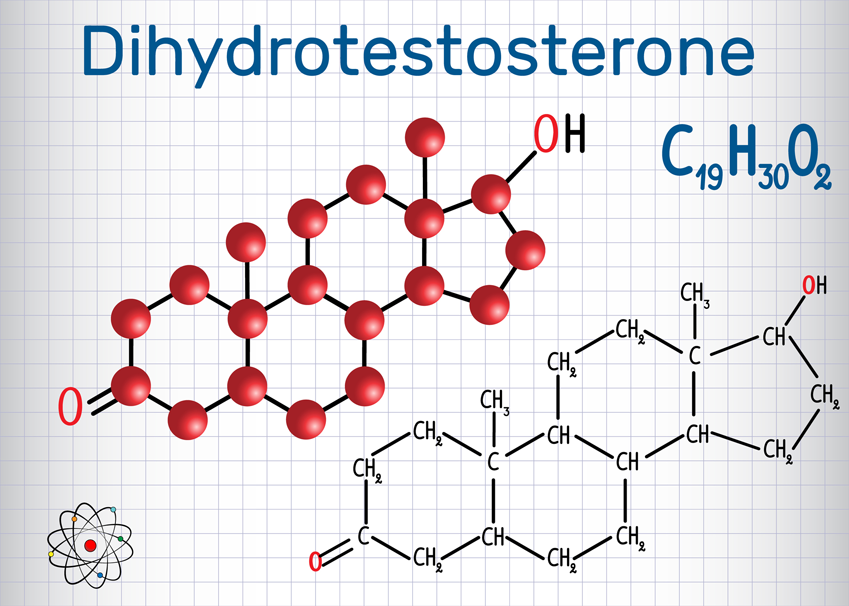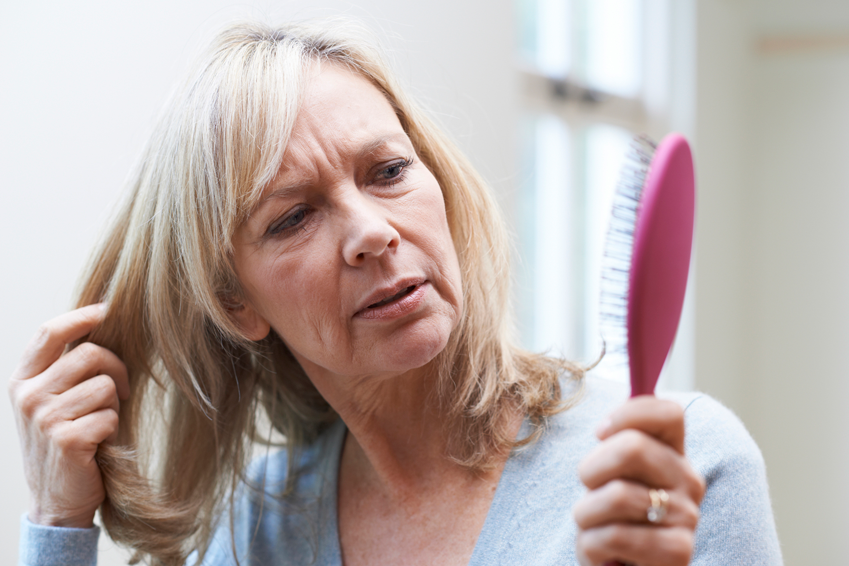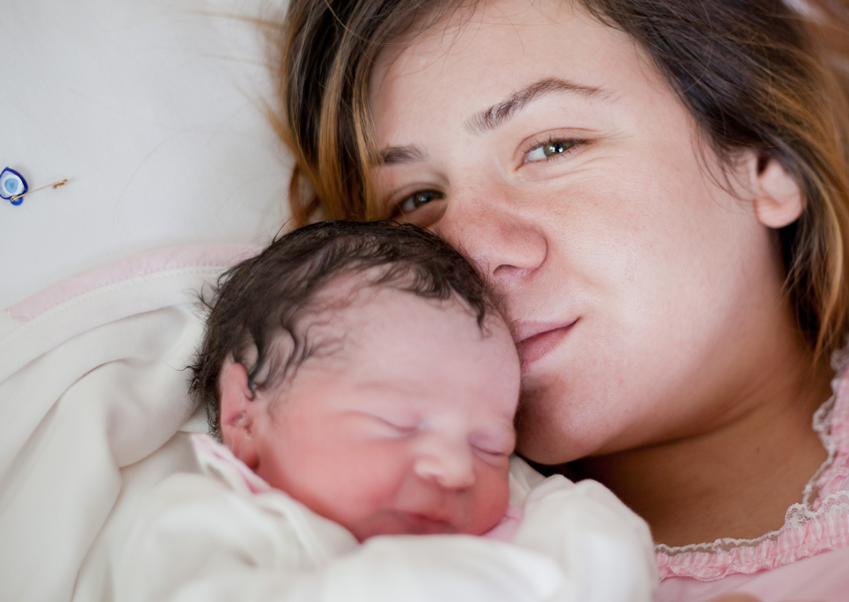Tens of millions of men and women are affected by hair loss in the United States. Shrinking hair follicles disrupt the hair’s growth cycles – and as new hair comes in, it’s finer and finer – until finally no hair grows at all.
Losing your hair is often caused by shifting hormone levels as a person ages. The relationship between hormones and hair loss is complicated, because hormone levels are affected by other factors, such as stress and poor diet. In addition, different hormonal factors apply to each of the sexes.
Male Hair Loss Hormones
Hair loss in men is closely related to hormones, especially as they age. Similar to menopause in women, men experience a decline and shift in their hormone levels. Hormones like testosterone are regulators of bodily functions, including hair growth. When testosterone encounters a specific enzyme in the body, it converts to dihydrotestosterone (DHT). This is responsible for a large proportion of cases of baldness in men.
Normally, hair grows in a positive cycle inclined towards growth, rather than resting. However, DHT shortens the hair’s growth cycle and increases its resting period. Eventually, the hair follicles remain in the resting state and no hair growth occurs. It is believed that excess levels of testosterone are responsible for high levels of DHT, thus increasing the likelihood of baldness. However, there is increasing evidence that the number of DHT receptors, rather than the level of testosterone are responsible for hair loss.
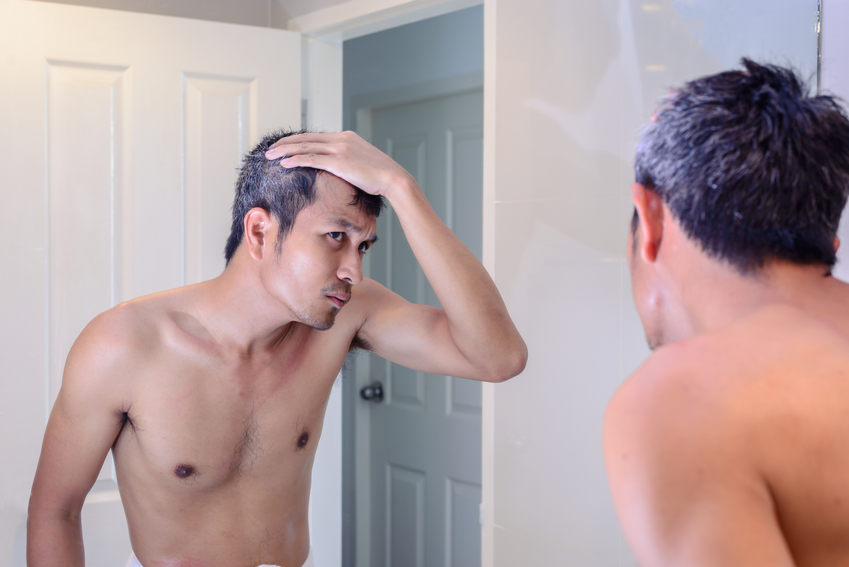
Other Hormonal Influences
While DHT is the most common hormone associated with hair loss, it is not the only one. Men who have high levels of the stress hormone, cortisol, may experience increased hair loss. Hormonal imbalances can also be triggered by improper diet and thyroid trouble.
Female Hair Loss Hormones
Most hair loss in women, as with men, can be attributed to an imbalance of hormones. While it’s not as prevalent in women due to higher levels of estrogen, DHT is typically the cause of balding. As women age, and estrogen levels drop, the hormonal balance is tipped and DHT causes the hair to thin and stop growing. Other causes of hormonal imbalance, such as genetics and thyroid issues, also contribute to female baldness.
Emotional stress is another contributing factor to female hair loss. When a woman is stressed, the body produces cortisol, which in turn increases the production of adrenaline, testosterone and DHT. Those increases in male hormones can cause a temporary hormonal imbalance. Sustaining high levels of stress can cause long-term imbalances that cause the hair to fall out, or stop growing.
Hair Loss and Reproduction
Many women experience hair loss after pregnancy, simply because their hormone levels are fluctuating wildly. Over time, hair loss becomes less prevalent as the hormones settle into a normal cycle. In most cases, the hair will grow back in after a few months, but sometimes the hormones do not balance properly and the hair doesn’t return.
Women who use birth control pills may also experience baldness, as they generally contain male hormones that convert to DHT. Low-androgen (male hormone) birth control pills are thought to decrease the production of DHT, but still provide birth control.
The bottom line on hormonal hair loss

Hair loss is a concern for millions of people. It can have a negative impact on self-confidence and creates stress, anxiety, and dissatisfaction.
Thankfully, there are many proven treatments for both male and female hair restoration available today. Specialized hair replacement clinics are located all over the country. Visit one, and discover what’s possible.

